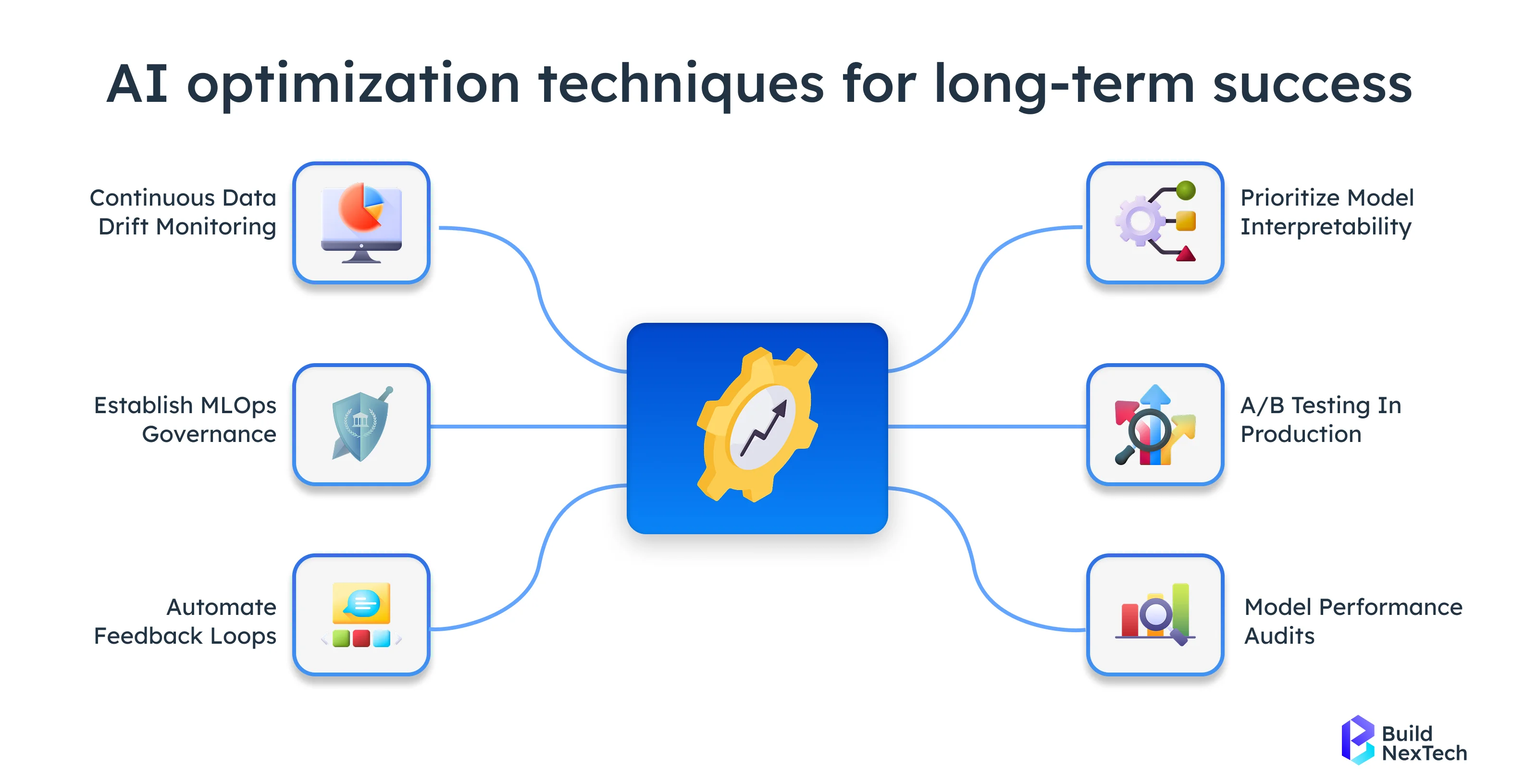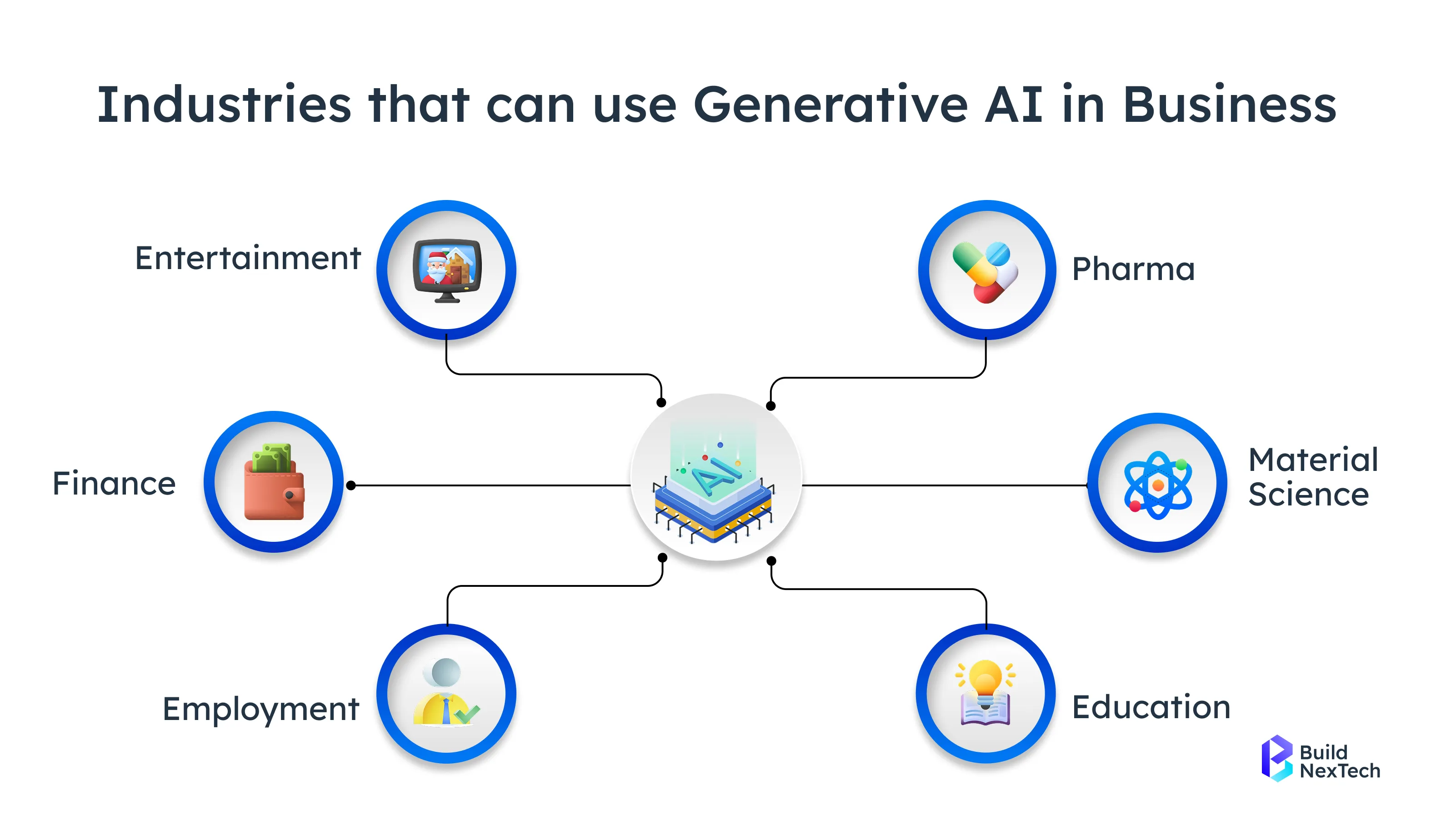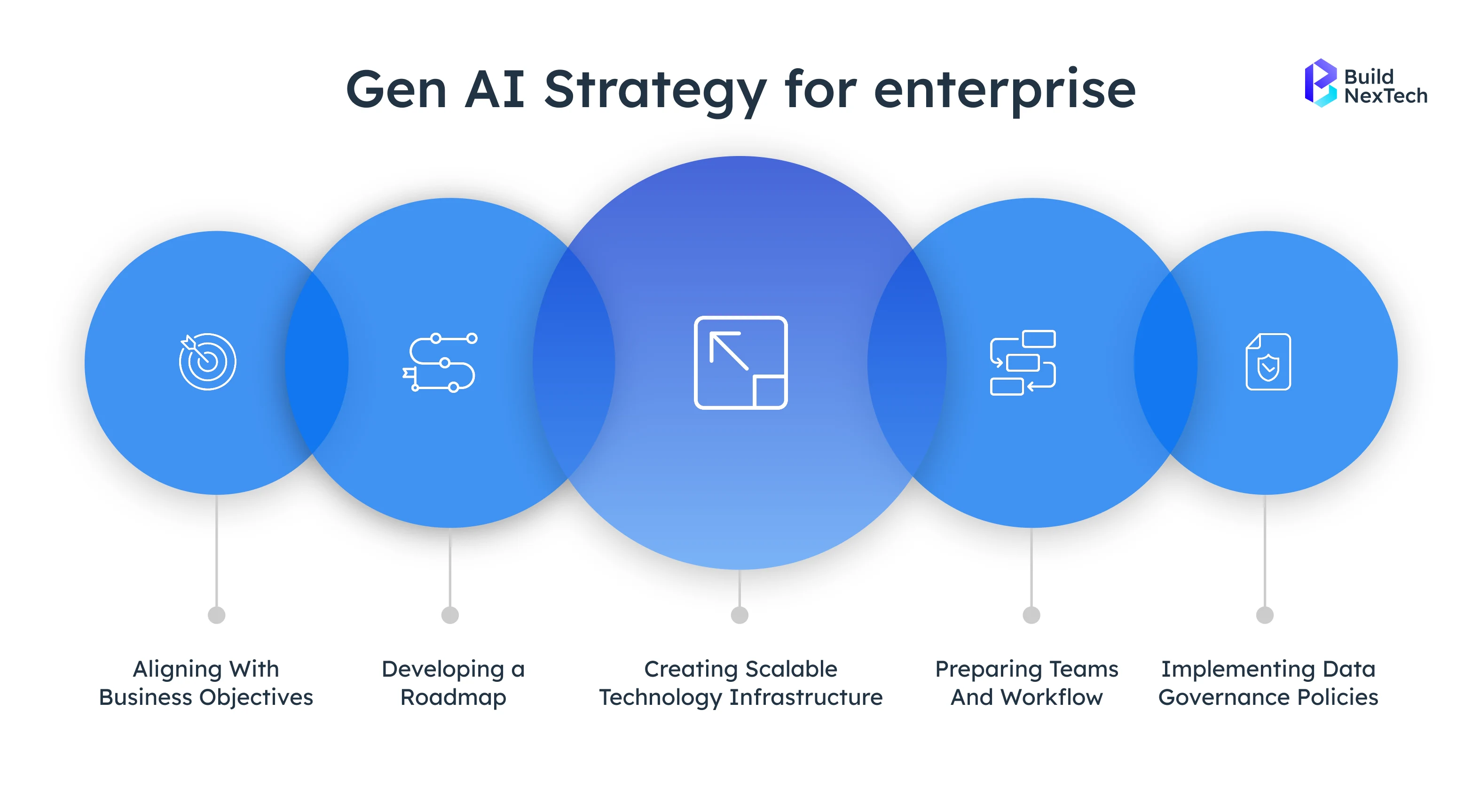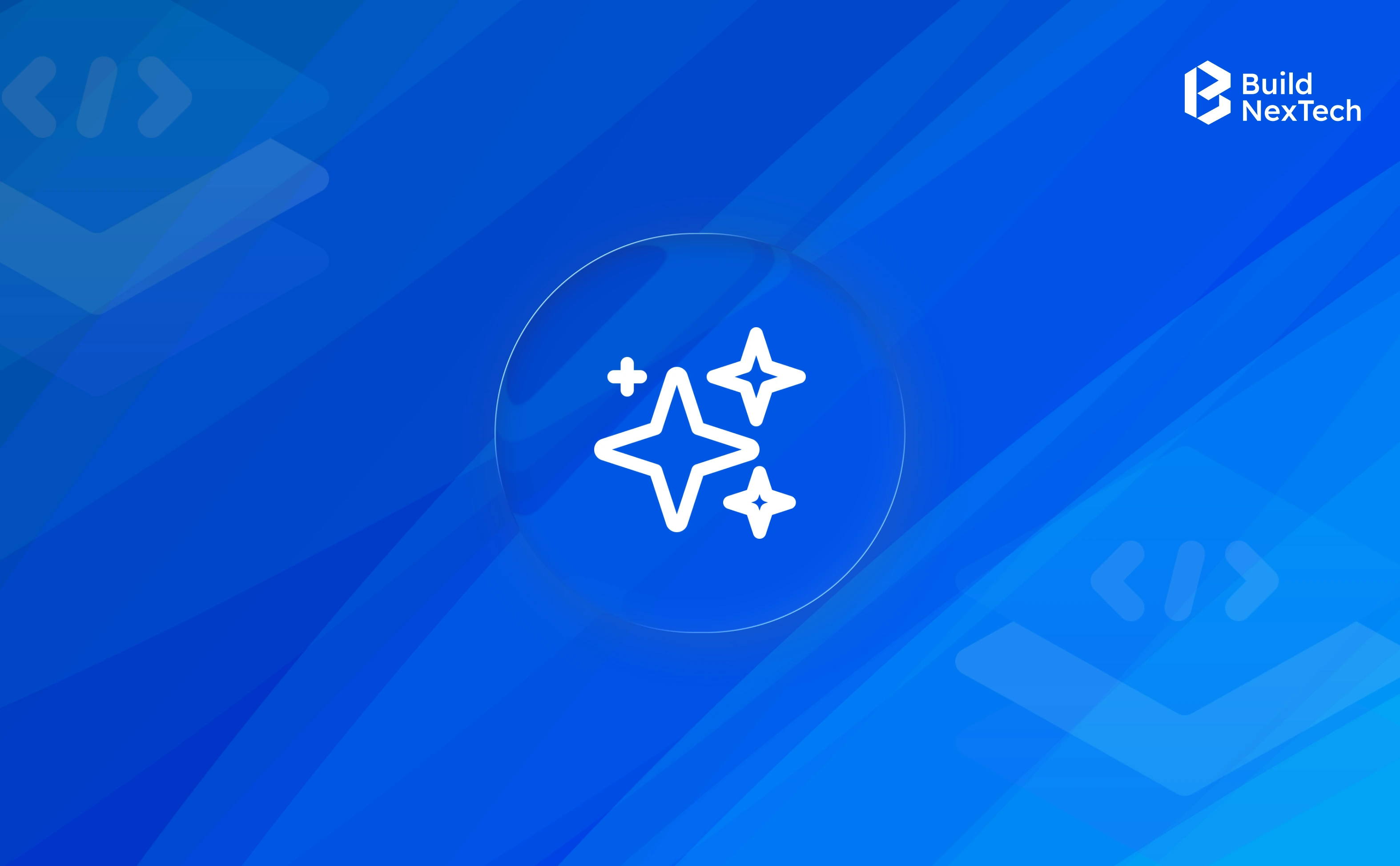In today’s competitive landscape, businesses need more than incremental automation — they need intelligent systems that can create, reason, and scale. Generative AI development services combine advanced models, engineering best practices, data governance, and domain expertise to deliver measurable business outcomes.
From exploring different types of Generative AI to learning from top Generative AI companies, enterprises can now adopt smarter, more adaptive technologies. Our approach includes AI agents, RAG systems, multimodal content generation, and secure enterprise deployments — powered by innovative Generative AI prompts and AI software for small businesses that enhance creativity, automate workflows, and transform customer engagement. This article explains how we design, build, and run intelligent AI systems to improve operations, experiences, and products at scale.
In this blog, we’ll cover:
- 1. The power of Generative AI in modern business: Understanding how AI systems create new content, automate processes, and enable smarter decision-making.
- 2. Industry-wide transformations: Real-world use cases across banking, healthcare, retail, and software development showcasing AI’s business impact.
- 3. Our end-to-end Generative AI expertise: From AI agents to RAG systems, discover how we build scalable, secure AI applications.
- 4. Preparing your business for AI implementation: Frameworks to ensure readiness across people, processes, and technology.
- 5. Future trends and continuous optimisation: Insights into emerging innovations, multimodal AI, and long-term AI optimisation strategies.
Understanding the Power of Generative AI in Modern Business
Generative AI empowers businesses to go beyond automation by enabling machines to create new ideas, designs, and content. It transforms how organisations innovate, operate, and engage customers — driving creativity, efficiency, and personalisation at scale.
Key benefits for modern enterprises:
- Accelerated innovation: Rapidly prototype products, designs, and content.
- Enhanced efficiency: Automate workflows such as coding, reporting, and documentation.
- Personalised experiences: Use AI agents and chatbots for tailored customer interactions.
- Data-driven creativity: Generate marketing assets and insights using enterprise data.
Key conceptual distinctions:
- AI vs Generative AI: Predictive AI forecasts outcomes, while Generative AI creates new artefacts like text, images, or code.
- Generative AI vs LLM: LLMs are a subset of Generative AI focused on language, while other models (GANs, diffusion, multimodal) power visual and cross-domain creation.

Generative AI ultimately combines human insight with machine intelligence — helping organisations scale creativity and decision-making across every business function.
How Generative AI is Transforming Industries and Operations
Generative AI is reshaping industries by enabling smarter automation, richer customer experiences and new revenue streams.
Real-World Use Cases Driving Innovation and Efficiency
- Customer service & virtual assistants: AI agents and custom AI chatbot development services handle routine queries, create responses using NLP, and escalate complex cases — improving SLAs and reducing agent load.
- Content generation & marketing: Generative AI text generation tools, image-to-image generative AI, generative AI in advertising and generative AI in Photoshop speed creative cycles and enable dynamic personalised campaigns.
- Financial services & digital banking solutions: Generative AI for financial services automates report writing, synthesises transaction narratives, and supports fraud investigations. Integrations with digital banking solutions improve UX and back-office efficiency. (Examples include bespoke implementations by enterprise AI development services teams.)
- Retail AI Solutions & commerce: From automated product descriptions to AI-driven merchandising and personalised promos, generative systems drive hyper-personalised services and uplift conversion.
- Healthcare & radiology patient care: AI-assisted content generation and RAG systems can help summarise clinical notes and support decision-making; however, these require strict compliance and clinical validation.
- Software development & automation: Generative AI coding tools and gen AI development services accelerate development workflows, help generate boilerplate code, and support AI & ML development services pipelines.
- Robotics automation & autonomous decision-making: Combining generative planning agents with inference engines enables adaptive robotic behaviours in warehouses and manufacturing.
- Data insights & business operations: Data processing pipelines feeding generative models produce actionable data insights, automated executive summaries and scenario simulations for business operations.
These implementations depend on strong foundations: transformer-based models, deep learning frameworks, well-constructed datasets, fine-tuning techniques, and reliable infrastructure (cloud computing, AI chips, Vertex AI or Hugging Face hosting).
Our Expertise in Generative AI Development Services
We provide end-to-end offerings across the AI lifecycle: discovery, model development, integration and long-term operations. Our services include AI ML development services, AI ML software development services, AI app development services, AI product development services, enterprise AI development services and AI development services company engagements.
Here are the skills we provide:
- AI agents & virtual assistants: Custom design, persona definition, multi-turn dialog, and transfer to contact centers.
- Content generation pipelines: Text, images, speech synthesis and multimodal outputs integrated with CMS and martech stacks.
- RAG systems & retrieval stacks: Build secure retrieval layers that combine enterprise documents with LLMs for accurate, source-grounded responses.
- Computer vision & image recognition: Diffusion models and GANs for image creation, enhancement and annotation workflows.
- NLP and transformer models: Sentiment, summarisation, entity extraction and customised LLM fine-tuning.
- AI tooling & engineering: Prompt engineering (AI prompt engineers), fine-tuning techniques, model evaluation, and toolkits for internal teams.
- Compliance & governance: Support for ISO 27001/ISO 9001 readiness, security audits, data privacy frameworks and bias mitigation processes.
- Integration & MLOps: CI/CD for models, data infrastructures, cloud cost optimisation, and monitoring for model drift and performance.
We work with platforms like Hugging Face, Vertex AI, and cloud providers. We follow strong development methods to provide custom AI chatbot development, generative AI development, and AI, RPA, and custom software integration.
Preparing Your Business for Generative AI Implementation
Successful AI adoption requires alignment across people, processes, and technology. It starts with careful planning and the right expertise. Organisations should begin exploring innovative AI-driven business ideas that align with their goals — from automating workflows to enhancing customer engagement and driving continuous innovation.
Partnering with AI business consulting teams with experience with deployment ensures that the proper data analysis, technology selection, and readiness assessment is in place to help businesses create a straightforward and achievable plan to develop, deploy, and scale AI in their models for future sustained value.
Preparation Framework:
- Assess AI readiness & identify use cases: With a scope of AI readiness, the next stage is working through identifying use cases. Prioritise the use cases where generative model systems may offer the highest ROI: customer service automation, content generation, code assistance, or internal knowledge agents.
- Data Annotation & Data Quality: There is a large cost associated with processing the data, annotation pipelines, and working with labelled datasets, which appear to be critical to supervised fine-tuning of generative AI systems or evaluation and testing of the processes.
- Infrastructure & Cloud Strategy: Determine if you are going with publication cloud services (e.g. AWS or Vertex AI) or if you want a hybrid or edge deployment based on latency requirements in the services through nodes/deployed machine learning solutions. Also, ascertain if you intend on using AI chips to scale your inference.
- Talent & Partnering: It is the talent and staffing strategy where you undertook your 'white space' effort. Identify internal and external talent, get organised and Prioritise acquiring AI engineers, data and AI specialists, (or Prompt Engineers), and partnering with AI development services.
- Security, Privacy & Compliance: Your organisation should be implementing data privacy controls, secure pipelines and doing security auditing as you build out info management. You may need to think about security audit but also what is compliance requirements (for Legal AI in some jurisdictions).
- Governance & Ethical Safeguards: You will want to build in safety layers, bias detection, systems of explainability, and human-in-the-loop for very high silence high usefulness domain.
- Budget Planning and Scalability: Budget will need expense planning for compute, storage, annotated datasets, and model license and support, ongoing expenses, etc.

This preparation supports reducing risk, reduces time-to-value, and supports generative AI systems outputs, work product readiness meeting expected business and legal use environments.
Key Steps in Generative AI Software Project Development
Building a successful AI solution requires a strong foundation and a structured approach. Modern Generative AI infrastructure supports scalable development, model training, and deployment across multiple environments. Many enterprises leverage Generative AI on AWS for its flexibility, security, and integration with data-driven tools. Inspired by the best Generative AI startups, our development process emphasizes rapid prototyping, continuous optimisation, and reliable delivery to ensure real-world business impact.
Our approach (within software) is a cyclical process, centered on the build:
- Understand the business objectives: Develop KPIs, success metrics, and compliance guidelines.
- Data collection, processing & annotation: Develop pipelines for ingestion, cleaning, annotation, and versioning.
- Proof of Value (PoV): Rapid tests - RAG prototype experiments, generative text demonstrations, or image generation experiments.
- Model selection & development: Decide on open model, privately held LLM, diffusion appearance models, or hybrid stacks, and choose if fine-tuning can be 'enough'.
- Pilot & user testing: Validate with real users, adapt prompts, system prompts, and safety filters.
- Integration & deployment: Integrate into workings - CRM's, contact centers, content services, or edge devices for robotics support.
- Testing & validation: Conduct bias checks, hallucination checks, stress tests, and security checks, while ensuring ISO and data privacy compliance.
- Maintenance & iteration: Monitor performance, retrain models, and add features - or use RAG systems to keep knowledge fresh.
Ensuring Long-Term Success With Continuous AI optimisation
Ensuring long-term success with continuous AI optimisation means regularly refining models, data, and processes to keep pace with changing business goals and market dynamics. By monitoring performance, retraining models, and integrating new data sources, organisations can maintain accuracy and relevance. This ongoing improvement ensures AI systems deliver sustained value, efficiency, and innovation over time.
- Re-training models and data pipelines to prevent slow decay.
- Operational Metrics (Latency, Accuracy, User Satisfaction) tied to business KPIs.
- Governance: Audit trails, versioning, compliance reporting.
- Vendor/platform strategy: vendor lock-in or open solutions (e.g. Hugging Face); Vertex AI, cloud vendors.

Emerging Trends Defining the Future of Generative AI
The future of AI innovation is being shaped by advanced creative and automation tools. Image-to-image Generative AI is transforming digital design with seamless visual creation, while platforms like Generative AI Midjourney push artistic boundaries through hyper-realistic outputs. Tools such as an AI business card generator simplify branding, and AI for business automation continues to streamline workflows, reduce manual effort, and boost efficiency.
Key trends shaping the Generative AI landscape:
- Multimodal models & AI agents combining vision, language, and action.
- Democratisation of AI through low-code tools and accessible AI toolkits.
- Edge & on-device AI to enhance privacy and reduce latency.
- RAG systems & hybrid retrieval improving factual accuracy and auditability.
- AI chips & optimised inference enabling larger models and cost efficiency.
- Integration across domains: AI + RPA + custom software driving automation.
These trends are redefining technology strategies, governance models, and business innovation.
Partner With Us to Accelerate Your AI Transformation
We deliver tailored solutions across AI, ML and software development: from custom AI development services to enterprise AI development services and AI product development services. Our team blends technical expertise (deep learning, transformer-based models, RAG, computer vision) with industry know-how (retail, finance, healthcare).
Why clients choose us:
- Proven delivery of AI ML development services and AI app development services.
- Strong integration skills: AI integration with legacy systems, digital banking solutions, and retail platforms.
- Focus on security, compliance and ISO-aligned processes.
- Cross-functional teams: AI engineers, data & AI specialists, and domain consultants.
- Continual optimisation: security audits, monitoring, and iterative model improvement.
If you want to explore AI-driven product ideas, streamline operations with AI agents, or build a secure, compliant generative AI platform, we can help — from ideation to long-term operations.
Conclusion: Shaping a Smarter Future With Generative AI
Generative AI is a transformational capability that can reimagine products, processes and customer experiences. Combined with strong data infrastructures, strong governance and the right, experienced AI development partners, generative AI is an engine that can drive business impact reliably. Whether you are piloting AI-based solutions, transforming customer service with virtual assistants, automating content generation or creating enterprise-grade RAG systems, the right approach is to convert testing into tangible value. Let’s work together to design generative AI solutions that are safe, scalable and aligned with your overall strategy.
People Also Ask
What are the biggest challenges that organisations are likely to encounter when using Generative AI for the first time?
Organisations regularly encounter challenges related to their data quality, cloud infrastructure, and the readiness of their AI systems. Old systems often complicate adoption, as do compliance with regulations regarding privacy.
How can generative AI development services help with customer experience and personalisation?
AI-driven systems can leverage data to provide offered personalisation, targeted support, and faster delivery of transactions. This ultimately elevates customer engagement and satisfaction.
What are some major variables which drive the cost of deploying a Generative AI development initiative?
Project complexity, model type, data requirements, and integration requirements - all play a role, especially additional customisation, security, and compliance requirements.
What are the metrics employed by organisations to gauge the ROI of Generative AI deployments?
ROI can be gauged through enhanced automation, lower operational costs, greater customer retention, and time savings on business processes that align with major objectives.
What are some of the main ethical and security issues organisations face adopting Generative AI?
Aiops would not want to face concerns of data privacy, removing bias from modelling, and ensuring transparency. Enabling safety layers, audits and frameworks, and trust compliance and reputation through responsible AI is imperative.



























.webp)
.webp)
.webp)

